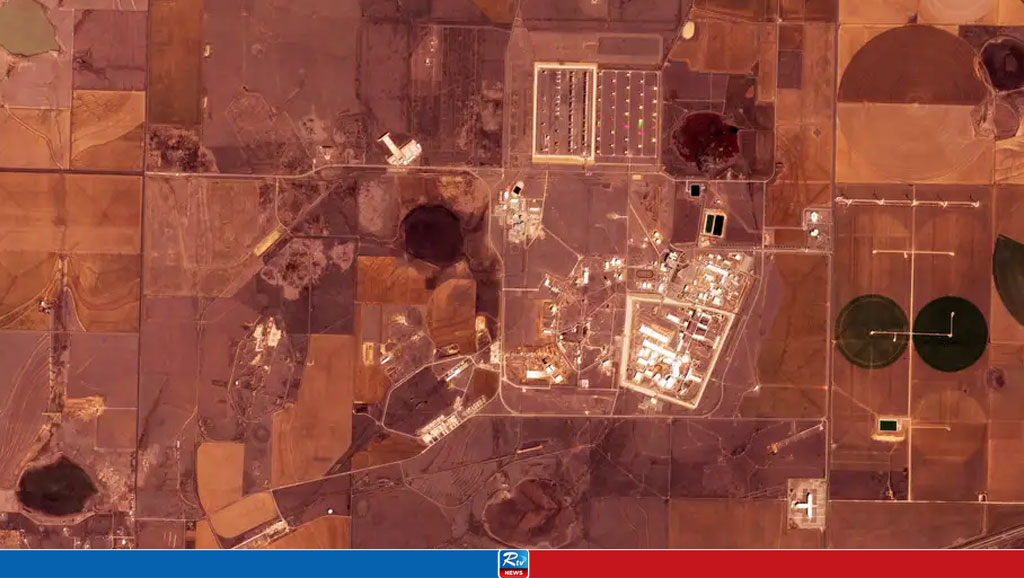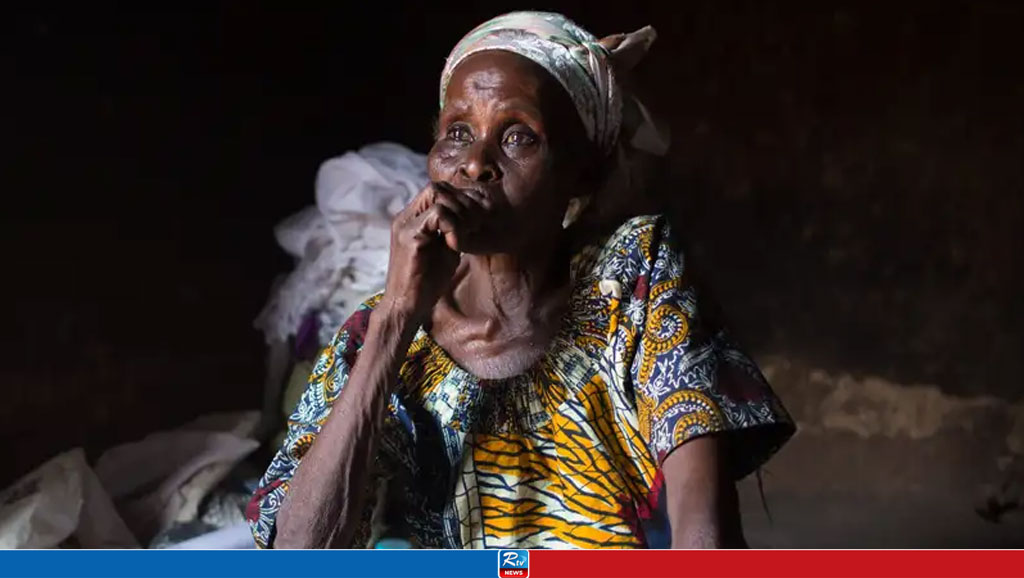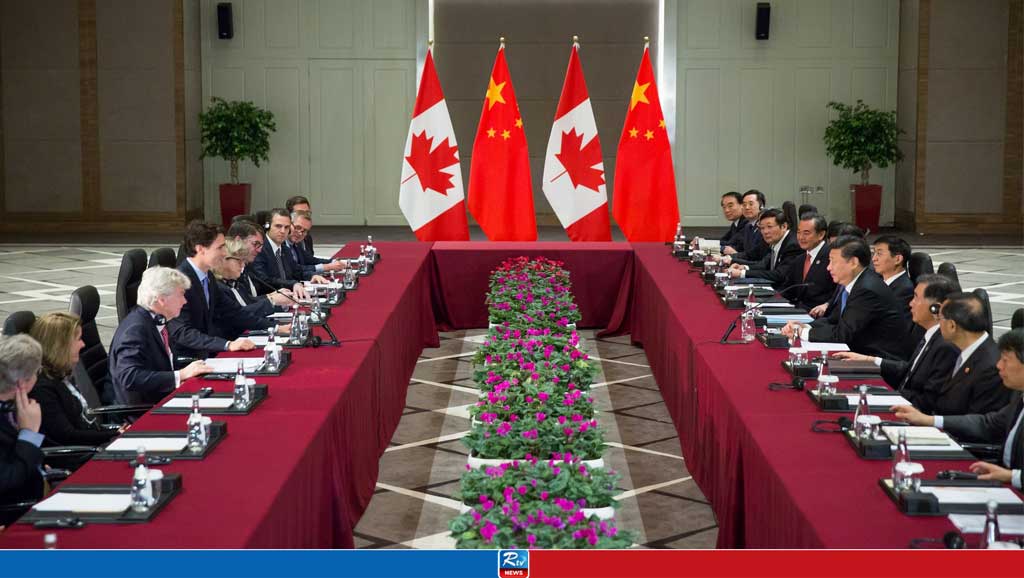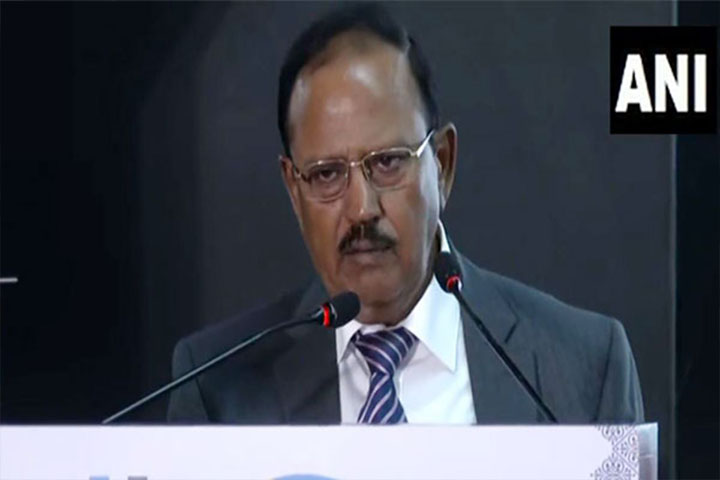“No religion is under threat in India”: NSA Ajit Doval
National Security Advisor Ajit Doval on Tuesday said that all religions are equal in India and no religion is under any threat in the country where cultures and religions that have co-existed in harmony for centuries.
“India continues to play its role as a refuge for heterodox ideas with infinite capacity to absorb dissent. No religion is under any threat,” Doval said during an event at the India Islamic Cultural Centre in the national capital. Muslim World League secretary-general Sheikh Dr Mohammed bin Abdulkarim Al-Issa, who is on a six-day India visit, also addressed the gathering.
“As a proud civilizational state, India believes in promoting tolerance, dialogue and cooperation to deal with the challenges of our time. It was no coincidence that despite having around 200 million Muslims, the involvement of Indian citizens in global terrorism has been incredibly low,” Doval said.
“India, the world’s largest democracy and the mother of democracies, is a land of incredible diversity. It is a melting pot of cultures, religions, and languages that coexist in harmony. As an inclusive democracy, India has successfully managed to provide space for all its citizens, regardless of their religious, ethnic or cultural backgrounds,” Doval added.
NSA also said that among India’s numerous religious groups, Islam occupies a unique and significant position of pride, with India being home to the second-largest Muslim population in the world.
“To give an idea of the scale we are talking about, India’s Muslim population is almost equal to the combined population of over 33 member states of the Organisation of Islamic Cooperation (OIC),” Doval added.
“The philosophy of cooperation and dialogue in Islam has over the centuries merged seamlessly with the ancient Hindu civilizational tradition of ‘Vasudhaiva Kutumbakam – The World is One Family’,” the National Security Advisor said.
“It was only by being open to accommodating various worldviews and ideas, interactions and assimilations of various cultures, beliefs, and practices that India emerged as a sanctuary for persecuted people of all faiths from across the world since times immemorial,” Doval highlighted how India has always accepted people from all religion and ethnicity.
Recalling events from the history Doval said, “India welcomed Arab exiles (in the court of Raja Dahir of Sindh), Jews, Tibetans, Parsis, Shias, Bangladeshis, Afghans and many others with open arms. This enduring tradition of accommodation is a testament to India being a deeply rooted multiethnic, multi-religious, and multilingual society.”
Doval also said that India’s culture has not only enriched art, literature, architecture, cuisine, technology, etc. but more importantly created a syncretic consciousness that permeated through common people. The edifice of modern India is built on the principles of equal rights, equal opportunities and equal responsibilities. This equality is guaranteed by our Constitution and Law.
Speaking of terrorism, Doval said that the challenge of extremism and global terrorism compels India not to lower its guard.
“To preserve the security and stability within our borders and also rise to the security challenges beyond, India has been leading the fight–the fight against individuals and organizations – who are promoting extremism, narcotics and terrorism,” he added.
Expressing the government’s absolute no tolerance policy against terrorism Doval said, “India is an extremely responsible power but when the need for a hot pursuit against terrorist havens was felt, we have gone all out to destroy terrorism in our national interest.”
“In the past, nations might have fought with each other to resolve their differences. But, as our Prime Minister says, this is no more the age of war. Future battles for the good of humanity will have to be fought against hunger, poverty, ignorance and want,” Doval said adding that wars need to be avoided in today’s times.
“In today’s world, with complex geopolitical challenges confronting us, religion has to become a beckoning light for the humanity to usher into an era of peace and harmony. Our differences will have to take a backseat if we wish to realize the true human potential and make this world a better place to live for our coming generations,” he added.
Before Doval’s remarks, Saudi leader al-Issa who is the current Secretary General of the Muslim World League (MWL), an organisation based in Saudi Arabia and representing Muslims worldwide, delivered his address.
The visiting Saudi delegate had said that his organisation is working across the world to promote religious awareness.
“There is this pessimist theory in the world that says that the clash between civilizations is unavoidable, and thus such a clash depends on two factors. There are religions and also civilizations. That’s why the United Nations has been aware of such theories, and they have established an organization, an organ within the United Nations called the Alliance of Civilizations,” al-Issa said.
Source : The Statesman
15 Jul 2023,14:47


















 Live Tv
Live Tv









